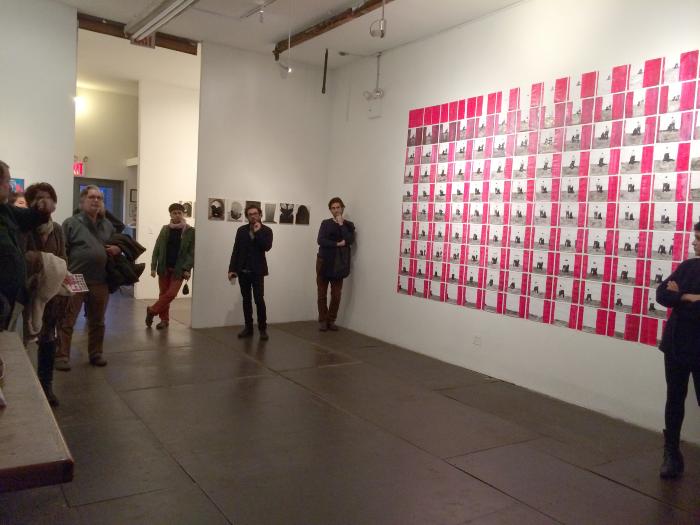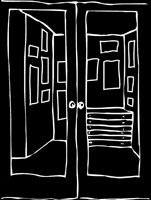event
Artists' Talk: Sepideh Salehi and Kamran Teherimoghaddam
Date
November 23, 2013Related exhibition
Sepideh Salehi and Kamran TaherimoghaddamAbout the event
ARTISTS' TALK with Sepideh Salehi and Kamran Teherimoghaddam
November 23, 4pm
TRACES: Drawings in Motion reveals the psychological effects of hostility, imprisonment, and disenfranchisement upon individuals living under despotic rule. Using drawing, painting, photography, found images, and video animation, Salehi and Taherimoghaddam transform real-life subjects of social injustice into personal reflections of their own identities as displaced artists. Their multi-media approach, by which scenes and figures are obstructed, abstracted, and illuminated, results in powerfully confrontational works that are more enigmatic than they are militant.
Taherimoghaddam and Salehi are husband and wife. Born in Tehran at a time of social upheaval, their work speaks to similar experiences and concerns. Taherimoghaddam’s Men at Work series is comprised of individual wood panels marked with black ink. The compositions show scenes of violence and abuse rendered in stark isolation. Collectively installed, relationships form among the works, activating and empowering them as a group. Also featured in the exhibition is a dynamic digital animation drawing titled, Faces.
Sepideh Salehi’s recent work, including animations and works on paper, highlights the daily struggle between civilians and law enforcement in Iran. She obtains films of civil unrest and confrontations from the Internet and reinterprets their content using a multi-step process. The films are first frozen into stills, which are printed individually onto photo paper. Salehi uses paint and ink to mark the images, and then reassembles them back into a video. Through added line, color, and soundtrack, the films are elevated and transformed from simple reportage to evocative, expressive, and highly emotional vignettes.
Taken together, the drawings and animations of Salehi and Taherimoghaddam provide a forceful, albeit ghostly account of the ongoing fight for human rights in the Middle East. While specific to the experiences of the artists and their countrymen, the universal themes of identity, dignity, and perseverance are effectively felt and applied across cultural barriers

